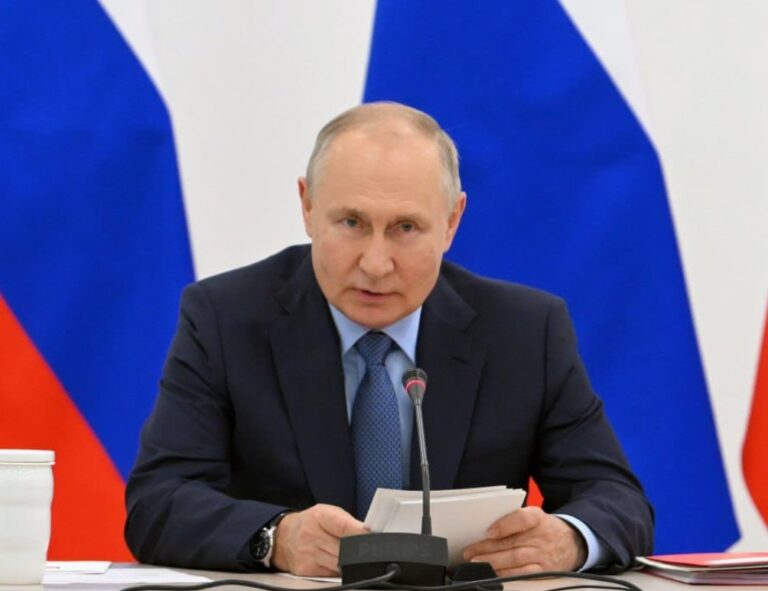Vladimir Putin begins his fifth term at the helm of Russia with victory in the elections on March 17, 2024. Despite the protests on the eve of the elections, the former Russian KGB official reconfirmed himself as the undisputed leader of the Russian Federation.
How long has President Putin been in office and how many times can he be re-elected?
Table of Contents
Farce elections in Russia
Putin’s victory at the 2024 elections is much discussed. This follow particularly significant events for popular opinion in Russia: from the death in prison of the dissident Alexei Navalny to the subsequent exclusion from the elections of all opposition candidates, which gave rise to a series of acts of protest by the population.
Void ballots with insults or protest phrases and voters who showed up dressed as Stalin or the Tsar. There are those who even went so far as to pour the green ink called zelyonka inside the ballot boxes or set them on fire. Zelyonka is a purely symbolic substance, used in attacks against political opponents, such as Navalny himself.
The protest organized at midday by Navalny’s supporters also failed. The population should have gathered in front of the polls at 12pm to count themselves, demonstrating the sabotage of the elections themselves.
However, the authorities have banned gatherings during the elections and the little change in turnout at that time of day shows that the policy of intimidation carried out by the Kremlin has had an effect.
How long has Vladimir Putin been in power
Vladimir Putin was Russian president from 2000 to 2008 and from 2012 to 2024. He will remain in office until 2030 and could potentially be re-elected until 2036.
Putin wasn’t always in politics, but he served as a KGB officer for 16 years. Having resigned in 1991 to begin a political career as deputy mayor of the city of St. Petersburg, he moved to Moscow in 1996 and joined President Yeltsin’s administration.
In 1999 it was Yeltsin who appointed him Prime Minister and, after the president’s resignation, Putin was elected as his successor.
First and second term (2000-2008)
His first term began in 2000 and ended in 2004, while his second term began in 2004 and ended in 2008. During this period, his policies mainly focused on the recovery of the country’s economy, which collapsed following the collapse of the Soviet Union.
Unable to hold a third consecutive term, he favored the election of his right-hand man Dmitry Medvedev. He then reappointed him Prime Minister in 2008.
Third term (2012-2018)
Putin ran for re-election in 2012 and won the election with 67% of the vote. The third term ended in 2018.
The years of the third mandate are those of the revolution in Ukraine in 2014, the revolt in Kiev, the advent of Euromaidan and the deposition of Ukrainian president Yanukovych.
Around the same time, Putin authorized military support for pro-Russian forces in Crimea, subsequently declaring the territory’s annexation to Russia.
Fourth term (2018-2024)
The fourth term begins in 2018 and ends in 2024, re-elected with 76.6% of the votes.
On February 24, 2022, Putin announces the start of a special operation in Donbass, starting the Russian-Ukrainian invasion and war. Despite the international denunciation of Putin’s actions, on 17 March 2024 Vladimir Putin was re-elected president with 87.29% of the votes.
The president’s fifth term begins in 2024, which will see him as the undisputed protagonist of the Russian state until 2030.
How many times can Putin be re-elected?
According to the Russian constitution, Putin could remain in office until 2036. The reason can be found in a series of small reforms and measures that he made to the constitution during his years in office.
In 2008, having completed the two mandates as President foreseen by the Constitution, Dmitrij Medvedev was elected in his place.
Subsequently, the new Government approves and issues a new law. Thus, the two mandates of the president in office must be considered consecutive and the mandate of the President is extended from four to six years. This is how Putin returned to power again in 2012 after the end of Medvedev’s mandate.
With a real ad personam law, to be re-elected again in 2024, a provision of the Constitution is presented in 2020, which allows living former presidents to see their mandates canceled. This allows him to run for office in 2030 as well.
Read also: 2024 is a year of decisive elections: where to look and what to expect












